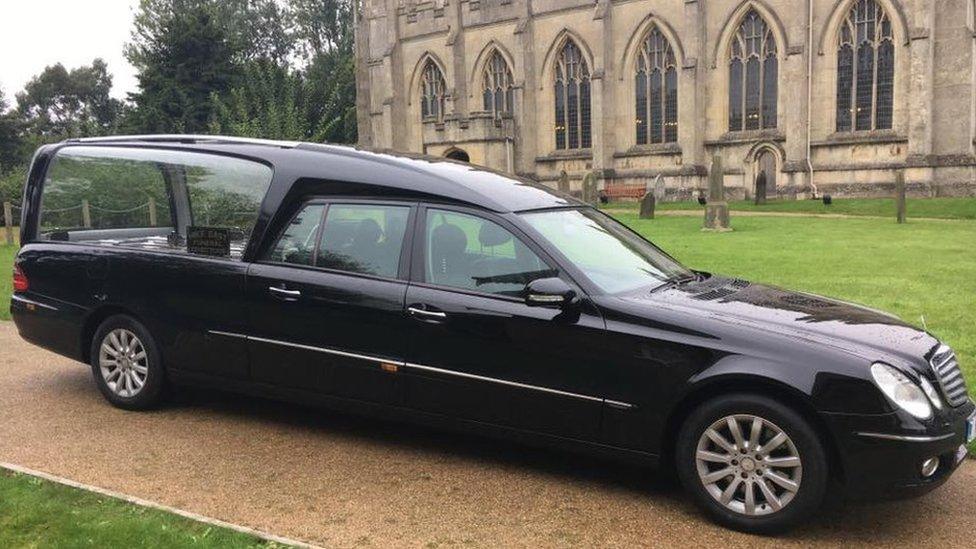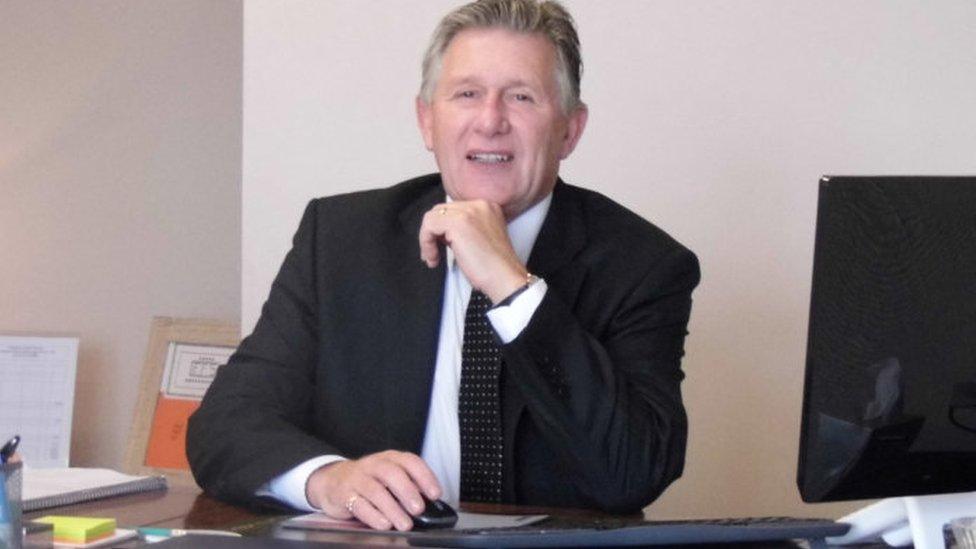Cost of living: How crisis is leading to rise in basic funerals
- Published

Funeral directors say rising numbers are choosing basic funerals
Funeral directors are reporting an increase in demand for basic services due to the cost of living crisis.
A simple, "direct to crematorium" funeral costs from around £1,100 - compared with a standard funeral package for about £3,500.
Undertakers are also feeling the squeeze, with one now charging extra to take the deceased to post-mortems.
Councils are finding inventive ways to cut bills, with one using heat from cremations to warm the building.
Richard East, from Hull-based Mike East and Family Funeral Directors, said: "We have noticed a large increase in more basic funerals.
"People are going for a more simple funeral - a hearse and maybe one car or they are using their own cars to take loved ones to the service. People are no longer spending £400 on a wreath and three cars."
Leeds-based Paul Hughes, from Hughes Funeral Services, said so-called "direct cremations" now account for 20% of their business.
He said: "A direct funeral is a cremation without any form of service or opportunity for friends and family to say goodbye, although some families may have some form of memorial service afterwards. It would just involve us taking the person to the chapel of rest and crematorium. A lot of families are opting for that."
Mr Hughes revealed there are now nine direct cremation time slots each day in Leeds.
He said: "There are a lot of deprived areas in Leeds. We will find ways to help struggling families cut the costs."
Increased advertising around direct cremations combined with the cost of living crisis is responsible for turning the tide on traditional funerals, he added.

Peter Dowkes, owner of Scarborough-based Falsgrave Funeral Service
Scarborough-based Peter Dowkes, owner of Falsgrave Funeral Service, estimated about 10% of its funerals are direct cremations.
"This time last year they were almost unheard of. The cost of living crisis must have had an effect on the choice to do that," he said.
Mr Dowkes said rising numbers of elderly people are leaving instructions for direct cremations.
"More and more of the elderly generation are saying, 'don't have a service for me, there is the money'."
Due to soaring fuel costs, Mr Dowkes said he is now charging families £100 for taking the deceased from the James Cook University Hospital in Middlesbrough, where post-mortem examinations are held, insisting his business can no longer absorb increases.
He added its costs, including the price of coffins and fuel for hearses, had "almost doubled" in recent months.
A spokesman for Rotherham-based J Parkinson & Sons suggested the pandemic, when large funeral gatherings were halted, was partly responsible for the rise in popularity of basic funerals.
He said: "Maybe people realise they do not need a traditional funeral and they don't want to cause an unnecessary burden on their families."

What councils say
Hull City Council said its Chanterlands Avenue Crematorium used a heat exchange unit, utilising heat from the cremation process to warm the building. The authority said it had also recently upgraded its boilers to more energy-efficient ones.
Barnsley Metropolitan Borough Council said electricity costs for its crematorium were predicted to increase 100% for 2022/23 based on predicted consumption while its gas bill was expected to rise by 296% for the same period. It has installed new, energy-saving cremators and is using fewer machines during quieter times.
Kirklees Council was "in the process" of installing new equipment at its crematoriums, which it said would "help counter any rise in energy costs". It added that staff were working hard to mitigate energy price rises.

Follow BBC Yorkshire on Facebook, external, Twitter, external and Instagram, external. Send your story ideas to yorkslincs.news@bbc.co.uk, external.